Spatial awareness Social Studies Worksheets for Ages 6-7
5 filtered results
-
From - To
Enhance your child's spatial awareness with our engaging Social Studies worksheets for ages 6-7! Designed specifically for young learners, these worksheets incorporate fun activities that promote understanding of geography, map reading, and spatial relationships. Children will enjoy navigating through shapes, following directions, and recognizing positions, all while building essential skills for academic success. Each worksheet is aligned with educational standards and encourages critical thinking in an enjoyable way. Explore various themes in social studies as your child gains confidence and expertise in spatial awareness. Perfect for classroom use or at-home learning, our printable resources make learning dynamic and interactive!
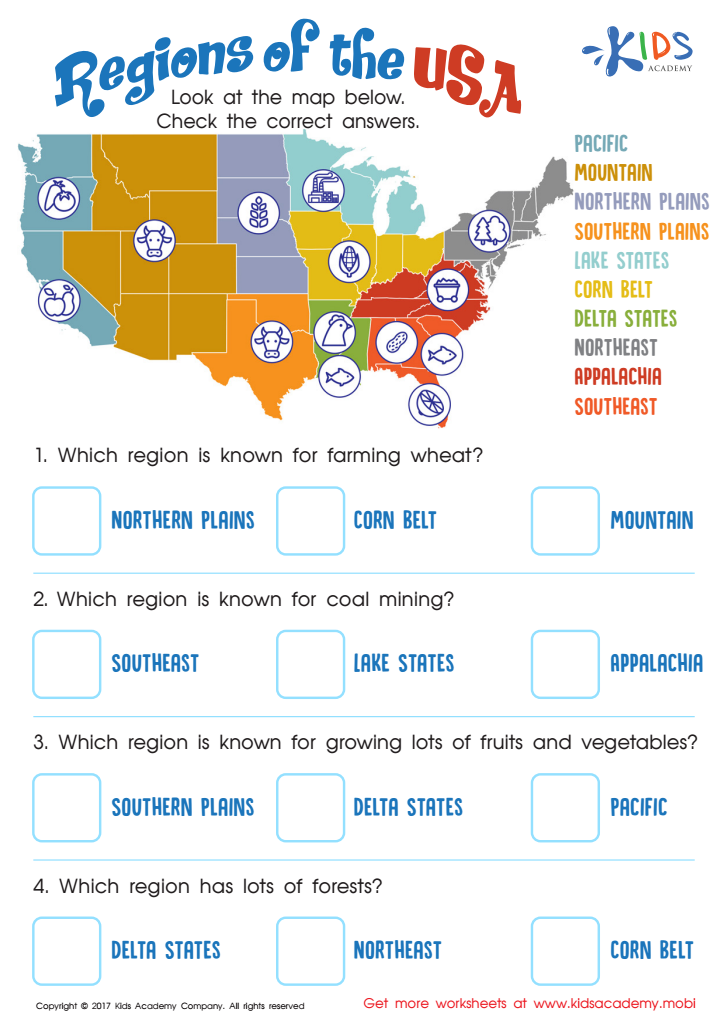

Regions of the USA Worksheet
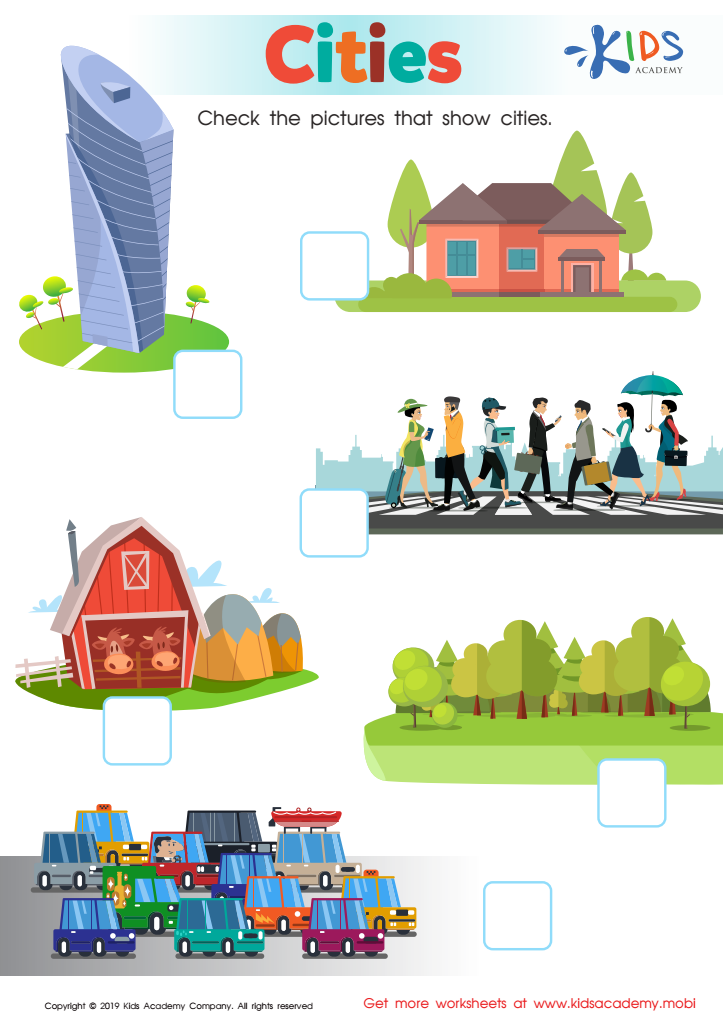

Cities Worksheet
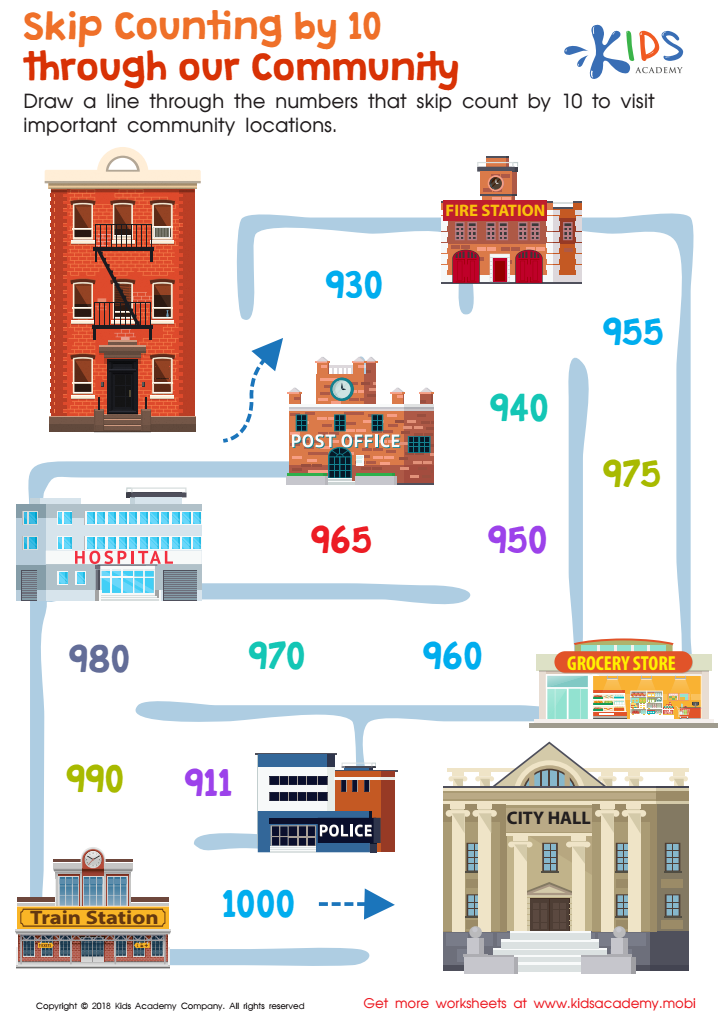

Skip Counting by 10 Through Our Community Worksheet
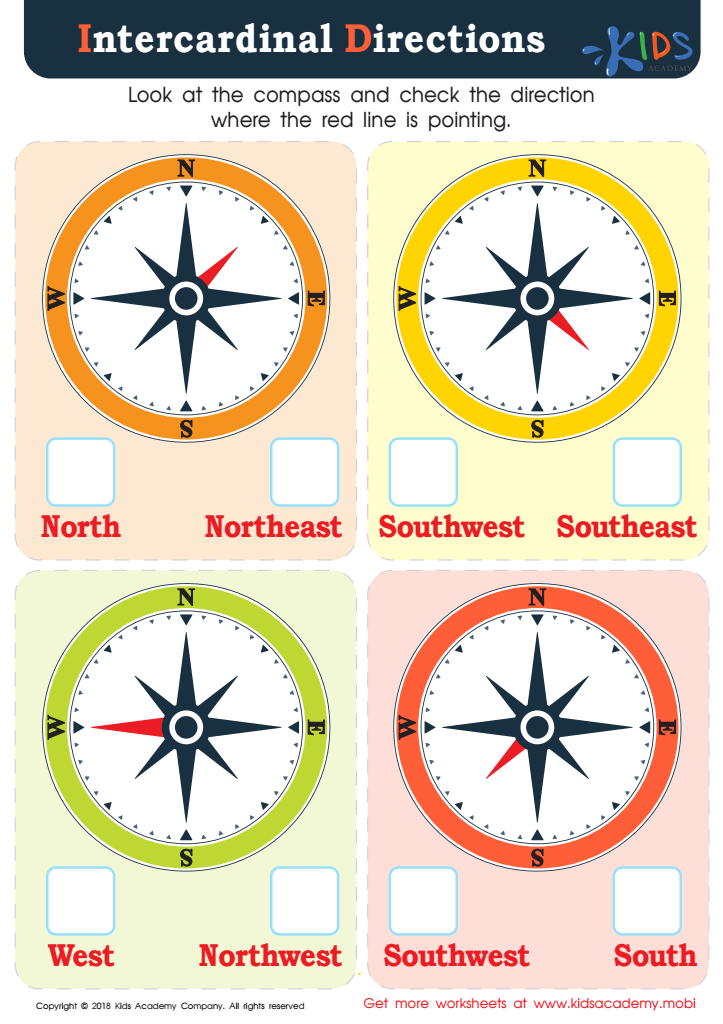

Intercardinal Directions Worksheet
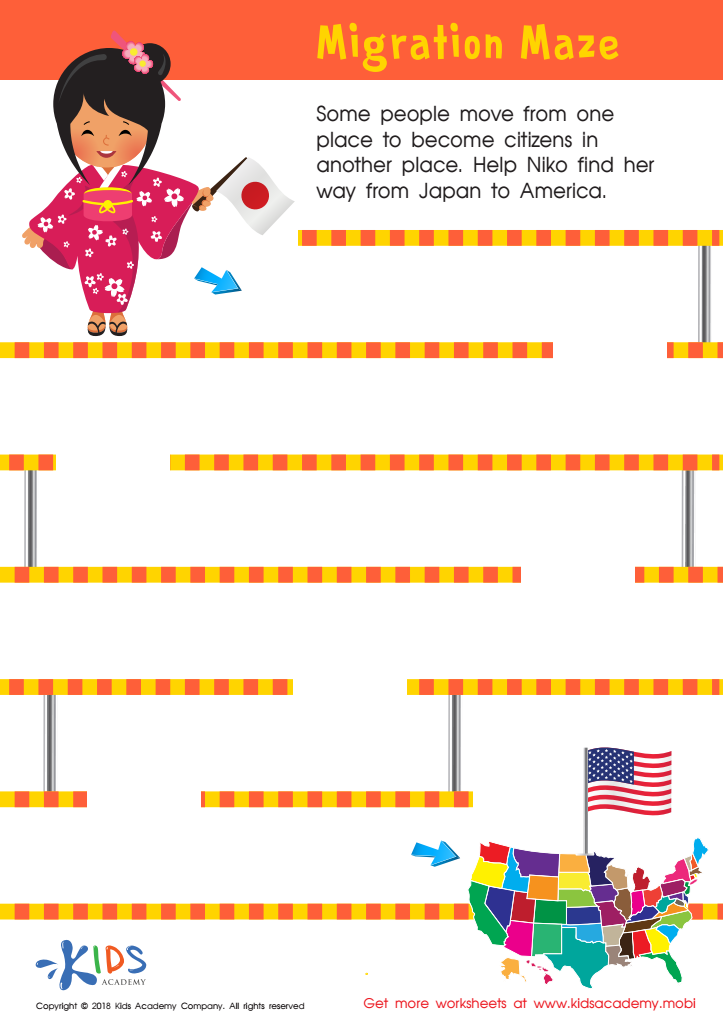

Migration Maze Worksheet
Spatial awareness in the context of social studies for ages 6-7 is essential because it helps children understand their environment, both physically and culturally. As young learners begin to explore maps, their communities, and historical contexts, developing spatial awareness profoundly enhances their cognitive skills.
Parents and teachers should prioritize this because spatial awareness fosters critical abilities such as problem-solving, logical thinking, and spatial reasoning—foundational skills that were crucial not just in academics but also in everyday life. By understanding spatial relationships, children can better grasp geography, recognize boundaries, and identify landmarks, which are pivotal in grasping local and global issues.
Moreover, spatial skills are linked to success in STEM fields, fostering a generation capable of innovation and practical understanding. Encouraging playful exploration through activities like building models, analyzing maps, or navigating local neighborhoods provides hands-on experiences that make learning more effective and engaging.
Additionally, facilitating socio-emotional development, children learn to work collaboratively on spatial tasks, fostering teamwork and communication skills. Thus, focusing on spatial awareness empowers young children to understand their role in the world, paving the way for active, informed citizenship in the future.
 Assign to My Students
Assign to My Students










.jpg)











